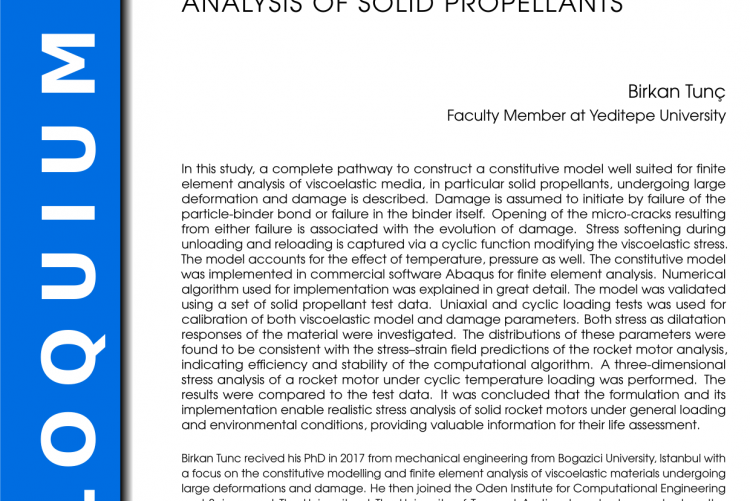In this seminar, a complete pathway to construct a constitutive model well suited for finite element analysis of viscoelastic media, in particular solid propellants, undergoing large deformation and damage is described. Damage is assumed to initiate by failure of the particle-binder bond or failure in the binder itself. Opening of the micro-cracks resulting from either failure is associated with the evolution of damage. Stress softening during unloading and reloading is captured via a cyclic function modifying the viscoelastic stress. The model accounts for the effect of temperature, pressure as well.
The constitutive model was implemented in commercial software Abaqus for finite element analysis. Numerical algorithm used for implementation was explained in great detail.
The model was validated using a set of solid propellant test data. Uniaxial and cyclic loading tests was used for calibration of both viscoelastic model and damage parameters. Both stress as dilatation responses of the material were investigated. The distributions of these parameters were found to be consistent with the stress–strain field predictions of the rocket motor analysis, indicating efficiency and stability of the computational algorithm.
A three-dimensional stress analysis of a rocket motor under cyclic temperature loading was performed. The results were compared to the test data. It was concluded that the formulation and its implementation enable realistic stress analysis of solid rocket motors under general loading and environmental conditions, providing valuable information for their life assessment.
Engineering Faculty Building Room 4E02.

